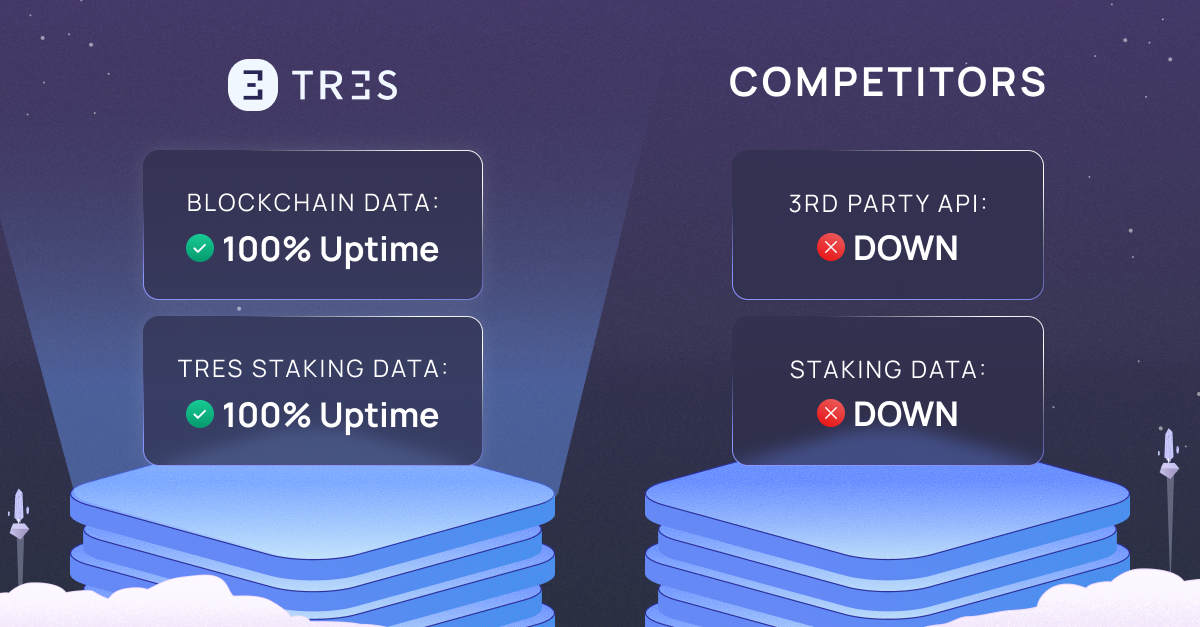
For finance teams navigating multi-chain DeFi complexity
Decentralized finance (DeFi) accounting introduces challenges traditional systems were never built to handle. Transactions span multiple blockchains, involve smart contracts with opaque rules, and often lack standardized reporting. Without strong frameworks, finance teams risk inaccurate valuations, non-compliant reporting, and costly audit gaps.
This guide sets out eight proven practices for building a scalable, transparent, and audit-ready DeFi accounting framework in 2025.
- Automate Transaction Tracking
- Document Accounting Policies
- Standardize Fair Value Measurement
- Separate Economic Activities
- Track Gas Fees Correctly
- Apply Consistent Tax Lot Methods
- Reconcile Regularly
- Build Transparent Disclosures
- Why Use TRES Finance
1. Automate Transaction Tracking
Manual spreadsheets collapse under the weight of DeFi’s complexity. A single wallet can interact with dozens of protocols and thousands of transactions in a quarter.
- Automated capture: Use blockchain-integrated accounting tools to log swaps, staking, liquidity provision, lending, and yield farming in real time.
- Cross-chain visibility: Consolidate data from L1/L2 chains, centralized exchanges, and on-chain wallets to eliminate blind spots.
- Transaction categorization: Distinguish between taxable events (swaps, disposals) and non-tax events (staking accruals) for accurate reporting.
- Audit-ready records: Capture metadata — timestamps, wallet addresses, tx hashes, fiat values — to simplify reconciliation later.
2. Document Accounting Policies
Ambiguity is a liability. Codified policies protect teams during audits and ensure consistency across reporting periods.
- Asset classification: Define treatment for LP tokens, staking derivatives, and NFTs — don’t leave it to interpretation.
- Revenue recognition: Specify when rewards or airdrops become taxable income (at claim vs accrual).
- Fair value rules: Standardize data sources and fallback oracles to avoid inconsistent pricing.
- Cost basis method: Declare and consistently apply FIFO, HIFO, or Specific-ID to avoid disputes.
3. Standardize Fair Value Measurement
Valuation inconsistency is a red flag for auditors. Transparency in how assets are priced is essential.
- Liquidity pools: Include token values, accrued fees, and adjust for impermanent loss.
- Staking & yield farming: Track both the staked asset and unclaimed rewards.
- Governance tokens: Use VWAP data from liquid exchanges instead of thin markets.
- Derivatives: Document assumptions when using pricing models in illiquid environments.
4. Separate Economic Activities
One blockchain transaction may mask multiple distinct financial events. Break them apart for clarity.
- Asset swaps: Recognize capital gains or losses at the moment of exchange.
- Liquidity provision: Treat as an investment, separate from any swaps involved.
- Rewards: Record staking or LP income as ordinary income when received.
5. Track Gas Fees Correctly
Gas isn’t trivial overhead — it directly alters margins and tax outcomes.
- Capitalize fees tied to asset purchases or token mints.
- Expense fees linked to revenue events like income collection.
- Allocate fees proportionally when a single tx covers multiple actions.
Always log the fiat equivalent of gas at the time paid to avoid valuation disputes.
6. Apply Consistent Tax Lot Methods
Lot method decisions can change tax exposure dramatically — consistency is non-negotiable.
- FIFO: Simplest, widely accepted.
- Specific ID: Most precise, requires meticulous tracking of each lot.
- HIFO: Minimizes taxable gains but demands strict documentation.
7. Reconcile Regularly
Unreconciled DeFi ledgers spiral into chaos. Frequent checks keep books defensible.
- Weekly: Validate wallet balances and recent tx totals.
- Monthly: Reconcile staking positions, LP tokens, and accrued rewards.
- Quarterly: Full audits across chains, derivatives, and contracts.
Automated reconciliation reduces error risk and scales with transaction volume.
8. Build Transparent Disclosures
Without clear disclosures, stakeholders and auditors can’t trust the books.
- Summarize risks: market, liquidity, regulatory, and smart contract exposures.
- Disclose fair value hierarchy classification for each asset type.
- Report returns, volatility, and realized income by strategy.
Why Use TRES Finance
Manual accounting systems can’t scale to DeFi’s complexity. TRES Finance enables finance teams to work confidently:
- Automated, multi-chain transaction capture.
- Real-time reconciliation across wallets and protocols.
- Audit-ready ledgers with complete transparency.
Purpose-built for digital asset finance teams, TRES Finance delivers accuracy, speed, and compliance in one platform.
Interested in TRES?







